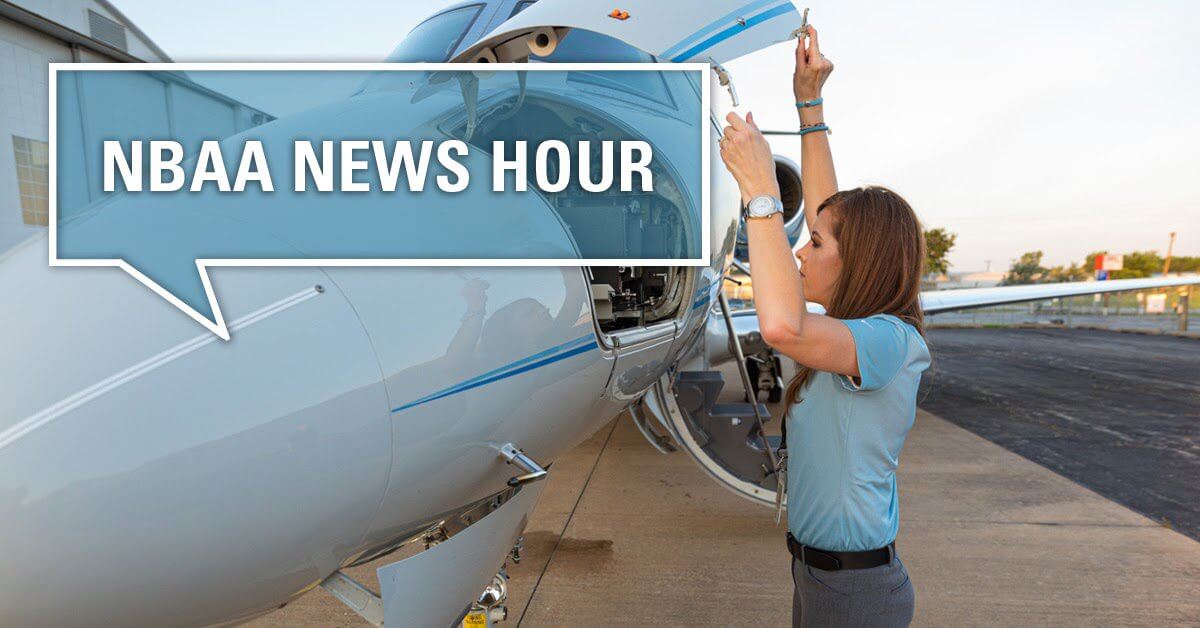
April 15, 2020
An NBAA News Hour webinar examined the physical and mental health considerations for aviation personnel during the COVID-19 crisis and offered some tips on how to cope with the pandemic.
A panel of experts discussed two important FAA policy changes: the agency’s decision not to take enforcement action against pilots with expired medical certificates, and the FAA’s prohibition against aviators using chloroquine and hydroxychloroquine to ward off COVID-19. They also discussed practical ways to minimize employee potential exposure to COVID-19.
This webinar was led by NBAA Senior Manager of Safety and Flight Operations, Mark Larsen, CAM. Panelists included:
- Dr. Paulo Alves, global director of aviation health at MedAire
- Greg Farley, manager of aviation safety and security at John Deere Global Aviation
- Matt McNeil, a licensed professional counselor and founder of LiftAffect
- Dr. Quay Snyder, president, CEO and co-founder of Aviation Medicine Advisory Services
Although the FAA recently announced it will not take enforcement action through June 30 against pilots with expired medical certificates, Snyder encouraged pilots to obtain a medical exam and renew their expired or soon-to-be-expired certificates as soon as possible to avoid possible difficulty getting an appointment as the deadline approaches.
This medical certificate policy applies to domestic flights only because ICAO standards do not allow for long extensions to medical certification. However, an employer may petition ICAO for an exemption for a pilot to fly internationally beyond the expiration date of a certificate. Aviation Medicine Advisory Services and others are working with ICAO to establish a less-onerous procedure.
The panelists also highlighted a recently published FAA policy letter disallowing the use by pilots of chloroquine and hydroxychloroquine to prevent COVID-19. They noted that these medications are not approved by the Food and Drug Administration for COVID-19 treatment or prevention and can cause undesirable side effects.
The experts also urged aviation managers to be aware of the potential impact of the COVID-19 crisis on mental health. McNeil said it’s critical to self-monitor mental health symptoms, such as increased irritability and trouble sleeping, because the risk for errors increases as symptoms worsen.
“Because of collective anxiety and uncertainty, we as pilots need to be extra vigilant in self-monitoring symptoms,” said McNeil. “In times like this, it’s easy to feel like everything is a threat when the reality is… you’re probably doing okay. ‘Managing the story’ is being mindful of the present moment – not letting your mind run into the future.”
Farley shared practical steps that John Deere Global Aviation has taken to manage the impact of the pandemic, saying the critical step occurred long before COVID-19 struck: Pandemic response is part of the company’s emergency plan, so they had resources in place to respond quickly. Farley’s organization has implemented new shift schedules, dedicated crewing policies and remote work to minimize employees’ potential exposure to COVID-19.
Farley said his company’s safety management system encourages a just culture, which enables personnel to report concerns without retribution and choose not to fly if they don’t feel up to it. Most importantly, he urged attendees to communicate with their team often and to simply ask them how they’re feeling during these difficult times.
Poignantly, Alves noted a change in perspective regarding crew fitness in the midst of COVID-19 outbreak.
“Everyone is responsible for the other person,” said Alves. “This is a totally new perspective and shows a need to change strategy. You’re not only responsible for yourself, but for the whole flight department.”
This webinar, titled “Keeping Your Crew Fit for Duty in the Downtime,” is just one in a series of educational opportunities NBAA has planned for the coming weeks. Learn more, register for upcoming webinars and view recordings of past webinars on the NBAA News Hour site.


 International Business Aviation Council Ltd.
International Business Aviation Council Ltd.